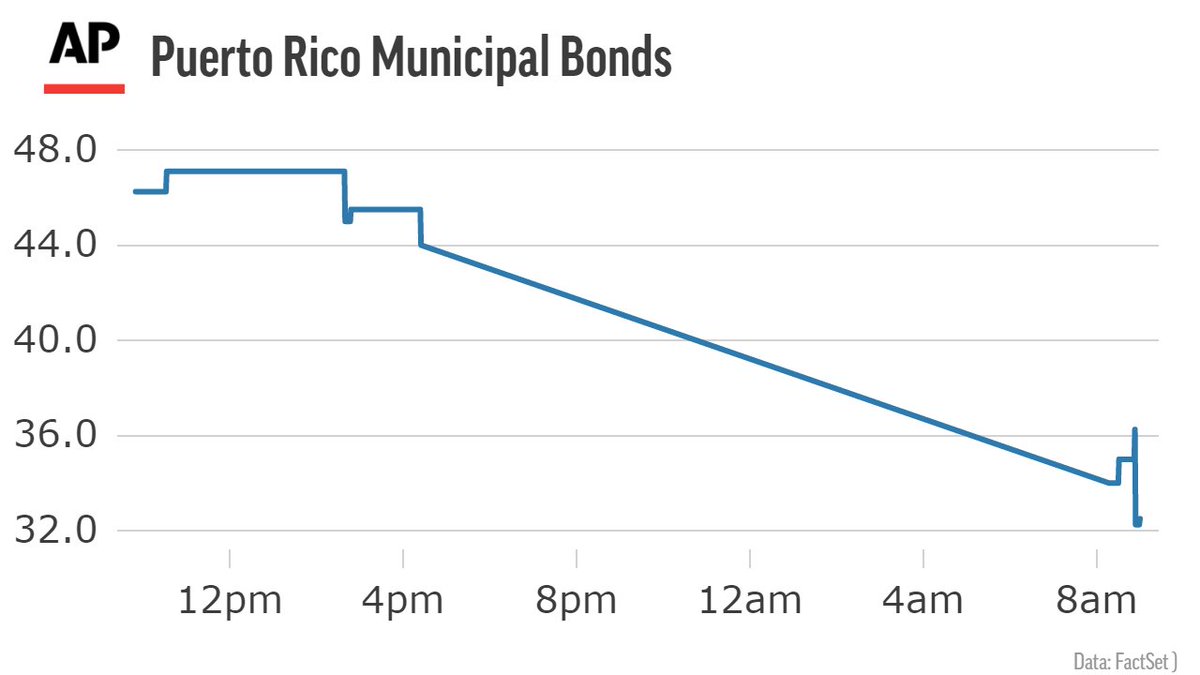What else did Donald Trump do this week?
He continued his reality-show approach to the presidency.
He dusted off his "billionaire from Central Casting" schtick. Facing criticism that he had wasted the critical weekend after Hurricane Maria devastated Puerto Rico by playing golf and whining about NFL players, Trump spent this past Sunday... attending a golf tournament.
The President's Cup is an off-year clone of the Ryder Cup played for charity, with the sitting president of the United States acting as honorary chair. Trump left his long weekend at his private golf club in Bedminster, N.J., to watch the end of the tournament in nearby Jersey City. But Puerto Rico wasn't entirely absent from his thoughts: he said he was "dedicating" the cup "to all of those people." (The prize money will go to the charities already designated, unrelated to Maria relief.)
Earlier in the day, Trump had called his Puerto Rican critics "politically motivated ingrates."
He showed his producer skills. Trump's attacks on "ingrates" were attention-grabbing, but as Axios reported on Sunday, they were not ad-libbed. Rather, they were part of what appears to be the real focus of the White House's Puerto Rico response: damage control and spin. A memo leaked, written by Homeland Security Advisor Tom Bossert, which discussed "planned hits" on critics, and summarized the official Trump theory of the storm: "The storm caused these problems, not our response to it."
The "planned hits" were duly executed, most notably by Trump, but also by administration officials like FEMA Director Brock Long, who today called the specific complaints lodged by San Juan Mayor Carmen Yulín Cruz as "political noise."
As Long's "planned hit" made news today, 45% of Puerto Ricans did not have access to clean drinking water, and 88% were without electricity. These matters have been the substance of Cruz's "political noise."
He (almost) controlled the narrative. Statistics like those were, for several days this week, available only through the Puerto Rican government's status.pr website. They had been on the much more highly-trafficked (and English-language) FEMA website, until they were deleted in favor of a rosier selection of statistics more in keeping with Trump's statement that he had "only heard thank-yous from the people of Puerto Rico."
The critical statistics were restored without comment after a few days of complaints.
He broke the fourth wall. In unscripted comments after his four-hour jaunt to Puerto Rico, Trump said that Puerto Rico's debt would have to be forgiven. "They owe a lot of money to your friends on Wall Street and we're going to have to wipe that out. You're going to say goodbye to that."
Trump has been the beneficiary of many bankruptcies and debt write-offs as a private citizen, but it's unlikely he understood what he was saying. The bond markets did, however--and crashed. Bondholders were said to be "suicidal" at the prospect of a unilateral cancellation of the debt they hold.
Mick Mulvaney, the White House budget director, was sent out the following morning to reassure the markets that when Trump said "We're going to have to wipe that out. You're going to say goodbye to that," he meant exactly the opposite. "I wouldn't take him word for word," said Mulvaney, using the traditional formula employed by Trump surrogates who must completely contradict him.
He picked good location scouts. Trump's brief trip to Puerto Rico showed him an island that was inconvenienced but cheerful, with problems that could be solved by cheerfully tossed paper towels. The recipients of those towels were screened supporters, who had found the resources in the wake of Maria to make high quality signs proclaiming their support for Trump. His antics on the trip didn't do much to help him, but the optics were generally good--especially since he was talked out of throwing canned goods at his supporters.
The optics were good because Trump did not leave the richest, least affected portion of the island.
He trained his understudy. Not all of Trump's entertainer-in-chief work was done in Puerto Rico. Mike Pence, who had made a special trip (at taxpayer expense) from Nevada to Indiana to attend a Colts game, immediately walked out of the game when he beheld about two dozen athletes kneeling during the national anthem. The players involved, teammates of former SF quarterback Colin Kaepernick, have knelt in recent games.
Pence's gesture of counterprotest was universally understood to have been pre-staged. For one thing, the media had been alerted in advance that he'd be leaving early; for another, Pence made a point of tweeting his arrival at the game--complete with a folksier-looking photo from a different game years ago. Nevertheless, Pence gamely maintained the stance that he had merely been overcome with emotion at the sight of athletes expressing political opinions.
But Trump is a harsh acting critic, so it was not particularly surprising when he jumped into the spotlight to claim credit for the whole thing, tweeting that he had explicitly instructed Pence to do as he did.
Pence's two extra flights on Air Force Two likely cost taxpayers several hundred thousand dollars, not counting the cost to the federal and local governments for his security during the "performance."
Why are these bad things?
- Hurricane victims don't care about remarks made at golf tournaments.
- The political spin about hurricane relief is not more important than actually doing hurricane relief.
- Making bad news harder to find does not make it go away.
- It's bad if the President of the United States trashes a municipal bond market, even--especially--if he doesn't mean to.
- Someone who can "hear only thank-yous," even as he is furious because he is hearing criticism, may still be telling the truth as he understands it--and that is not a sign of good mental health.
- We already knew how Donald Trump felt about NFL players kneeling to protest social injustice.
